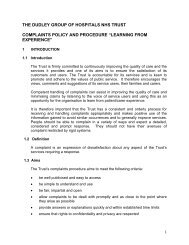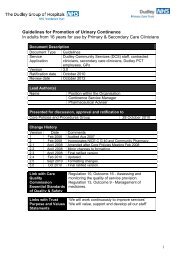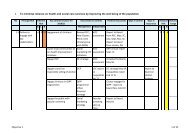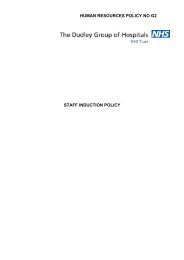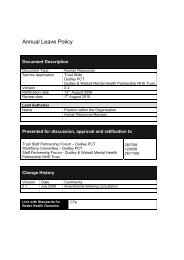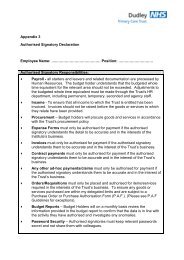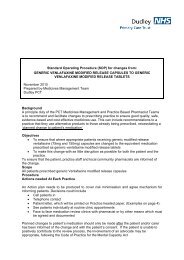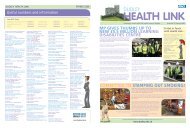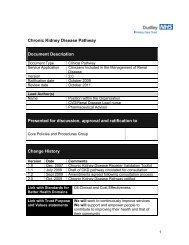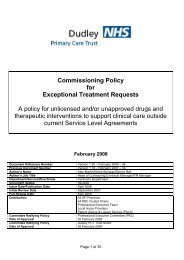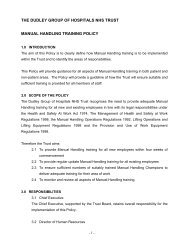Medicines Management Policy - Dudley Primary Care Trust
Medicines Management Policy - Dudley Primary Care Trust
Medicines Management Policy - Dudley Primary Care Trust
You also want an ePaper? Increase the reach of your titles
YUMPU automatically turns print PDFs into web optimized ePapers that Google loves.
8. Responsibilities of the person administering the medication<br />
8.1 The healthcare professional must be aware of the action of the prescribed item,<br />
the usual dosage, the common side effects, interactions and how these relate<br />
to the treatment of the individual patient/client overall. They should be familiar<br />
with sources of information about medication such as the BNF.<br />
8.2 The healthcare professional must make every reasonable effort to maintain and<br />
develop knowledge of the common medications used in his/her area of practice.<br />
This knowledge should include awareness of:<br />
i. The signs of adverse reactions (ADR) to medication and the actions to<br />
be taken should this occur.<br />
ii Reactions that may occur when different medicines are combined.<br />
iii Contra indications<br />
iv How to report a suspected ADR i.e. use of the yellow card system.<br />
8.3 Where a healthcare professional has concerns about the clarity of the<br />
prescriber’s instruction or the appropriateness of a drug treatment then it should<br />
be raised with the prescriber or a pharmacist.<br />
8.4 Concerns about defective products should be raised with the supplying<br />
pharmacy as soon as possible. The pharmacy should advise on the action<br />
required concerning the medicine, and the necessity of obtaining an alternative<br />
supply. The product must be quarantined immediately. The incident must be<br />
logged on Sentinel which will be passed to the prescribing team. The person<br />
discovering the defect must inform the prescriber if the patient has received the<br />
product.<br />
8.5 The healthcare professional is responsible for teaching<br />
• The patient/client about medication in a manner commensurate with the<br />
individual’s ability to comprehend. This teaching should include the names<br />
and purpose of the medication, the dose and timing and the common<br />
potential side effects.<br />
• Student nurses about issues related to the prescribing and administration of<br />
medicines as outlined above.<br />
8.6 Where supervising a student health professional, the qualified professional<br />
must clearly countersign the signature of the student.<br />
23



